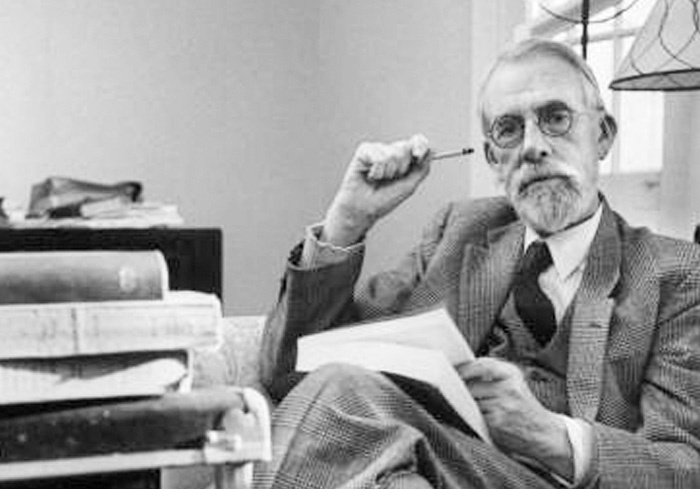Robaird O’Cearbhaill
Hong Kong Correspondent
Christopher Dawson was a foremost Catholic historian of the 20th century. He was influential in international authors such as J.R.R. Tolkien and the leading poet, Anglo-Catholic, T.S. Eliot. But where he broke new ground substantially from other medieval scholars was in his view of Western civilization as founded in Christianity. He also differed in his view that the so-called Dark Ages following the fall of the Western Roman Empire to the Renaissance, often ignored by historians, were full of spiritual and scientific scholarship despite multiple destructive invasions that destroyed culture.
In his book Religion and the Rise of Western Culture,Professor Dawson states that without the Church, there was no central unifying force to replace the Empire. He upheld “the vital function of religion as a principle of continuity and conservation and as the source of new spiritual life. In that age religion was the only power that remained. In such a world…(maintaining its) power by the awe inspired by its supernatural prestige and the spiritual violence it opposed to the physical violence of barbarism.
“The Christian Church inherited the traditions of the Empire. It came to the barbarians as the bearer of a higher civilization, endowed with the prestige of Roman Law and the authority of the Roman name. The breakdown of the political organization of the Roman Empire had left a great void which no barbarian king or general could fill, and this void was filled by the Church as the teacher and law-giver of the new peoples.” Dawson maintains that the Latin Fathers of Christianity were also founders of the West.
“The Latin Fathers – Ambrose, Augustine, Leo and Gregory – were in a real sense the fathers of Western Culture, since it was only insofar as the different peoples of the West were incorporated in the spiritual community of Christendom that they acquired a common culture.”
Dawson underlined that spiritual progress was enhanced despite the economic and urban decay following the fall of the Empire that a “world of violence and justice, sinking to destruction, but on the other side there is the divine power and mystery in which the harsh necessities no longer dominate man’s life-where nothing is impossible and every human suffering and misfortune may find a remedy.” Therefore, he states that “the Dark Ages, the hour of human failure (must be) when the power of eternity is manifested.”
As the Catholic Encyclopedia declared in the entry on St Gregory of Tours: “the supernatural was always quite near to men of that age.” As examples, Dawson points out supernaturally themed books of Bishop St. Gregory of Tours, Miracles of St. Martin, The Life of the Fathers, Miracles of St. Julian of Briode, Glory of the Blessed Martyrs and the Glory of the Confessors. Dawson concludes that “the beginning of Western culture is to be found in the spiritual community which arose from the ruins of the Roman Empire owing to the conversion of the northern barbarians to the Christian Church. The Christian Church inherited the traditions of the Empire.”
He also deduces that continuity resulted in the Renaissance. “Those thousand years saw the making of Europe and the birth and rebirth of Western Culture… They have left an indelible imprint on both our social and religious life.”
“Humanism (and the Renaissance) were dependent on Christian antecedents… a rediscovery of man. But the author of that discovery, the active principle was not the natural man; it was Christian man. The great men of the Renaissance were spiritual men.”


 Follow
Follow


